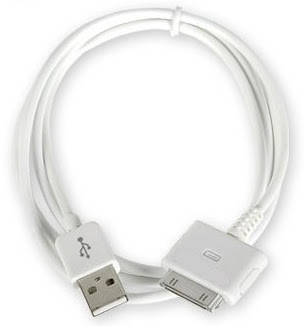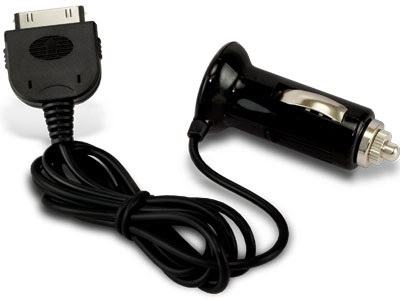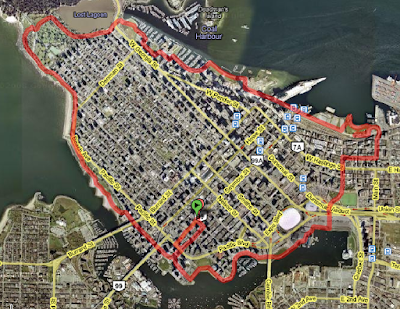Back when the Democrats were preparing to sell our rights, our privacy, and the very rule of law to the telecom lobby while
capitulating in the most pathetic way possible to the Bush administration, I wrote a letter to Wisconsin Democratic senator
Herb Kohl. I urged him most specifically not to vote for
H.R. 6304, a bill that made a mockery of the rule of law by
giving felonious telecom companies a free pass for having helped the federal government to spy on US citizens in a way directly prohibited by federal statute.
Of course, he took his marching orders from the
Democratic "leadership" (who take their marching orders from AT&T) and voted for the bill. In his letter he never addresses telecom immunity, which was
the key issue I wrote to him about. Instead, he
lies about the bill and its provisions, parroting the line set down by his masters. And of course, he never mentions that
he personally voted to sustain telecom immunity.
Finally, I find it particularly offensive that he says he's taking time to "address my concerns" when he's not
addressing them, he's
ignoring and
dismissing them. No, Senator Kohl, "everyone"
doesn't agree.
| HERB KOHL |
| COMMITTEES: |
| WISCONSIN |
|
|
|
| APPROPRIATIONS |
| WASHINGTON OFFICE: |
|
|
| 330 HART SENATE OFFICE BUILDING |
| JUDICIARY |
| WASHINGTON, DC 20510 |
|
|
| (202) 224-5653 |
| SPECIAL COMMITTEE |
| http://kohl.senate.gov | United States Senate | ON AGING |
| WASHINGTON, DC 20510-4903 |
|
| July 24, 2008 |
|
Mr. Chuck Leduc
[address redacted]
Dear Mr. Leduc:
Thank you for taking the time to contact me. I value the input I get from people back home in Wisconsin, and I would like to take this opportunity to address your concerns.
In December 2005, the revelation that the President authorized the National Security Agency (NSA) to monitor telephone calls and e-mails of United States citizens without obtaining a warrant or court order raises important legal and policy questions. I strongly believe that the President, Congress, and the courts all share a common goal: to protect the American people. If terrorists are operating in this country, or people in this country are communicating with terrorists, everyone can agree that we must give our government the tools it needs to protect the American people, including the power to listen to their phone calls. Security, the Rule of law, and the protection of civil liberties, however, are not mutually exclusive concepts; we can have all three.
In August 2007, Congress passed, and the President signed, the Protect America Act (PAA). I opposed this bill because it authorized broad electronic surveillance of Americans' communications, and provided for little oversight by Congress and the Foreign Intelligence Surveillance Court (FISC). The PAA was ultimately enacted as a temporary fix. The ability to conduct surveillance pursuant to the PAA was set to expire in early August.
It was critically important for Congress to authorize necessary surveillance authorities, this time with appropriate civil liberties protections. To that end, on June 19, 2008, Representative Silvestre Reyes introduced the FISA Amendments Act of2008 (H.R. 6304). This measure authorizes the Intelligence Community to conduct electronic surveillance of individuals located outside of the United States, but also provides Congress and the Foreign Intelligence Surveillance Court greater authorities to conduct oversight of this surveillance and protect the privacy of innocent Americans. In addition, the bill authorizes a thorough investigation of the President's Terrorist Surveillance Program and clarifies that no surveillance can be conducted outside of the Foreign Intelligence Surveillance Act. I voted for H.R. 6304 because I believe it strikes an appropriate balance between national security and protecting civil liberties. It was signed into law on July 10, 2008.
[page 2]
Thank you again for contacting me on this important issue.
Sincerely,
(signed)
Herb Kohl
United States Senator
HK:mxh
... and finally, my response to his letter:
Dear Senator Kohl,
I am rather disappointed in your response to my letter about telecom immunity and spying. In my letter I specifically urged you to uphold the rule of law by holding telcos accountable for their lawbreaking. I obviously think your vote went contrary to the best interests of the people of the state you represent, but that is not why I am writing back.
The reason I am writing back is because you did not address telecom immunity, my primary concern, in your letter. That is political cowardice: if you are going to put the interests of corporations above those of your constituents, you might as well own up to it. You could even have made up some implausible justification (you seem to be pretty good at that), but to pretend it didn't happen is just plain insulting. Just how stupid do you think we are?
Sincerely,
Charles LeDuc
 This is fixable through software. By being extremely careful about how I turn on 3G and WiFi functionality I can make it work reliably through the day without charging more than once. But I shouldn't have to exercise extreme caution and constantly massage settings to make sure the battery doesn't discharge in bare hours: it is a computer and it should take care of it for me. This is not the traveling salesman problem, it's easy: if the screen is off I'm not using it and I don't need the 3G network, so stop trying to nuke my balls.
This is fixable through software. By being extremely careful about how I turn on 3G and WiFi functionality I can make it work reliably through the day without charging more than once. But I shouldn't have to exercise extreme caution and constantly massage settings to make sure the battery doesn't discharge in bare hours: it is a computer and it should take care of it for me. This is not the traveling salesman problem, it's easy: if the screen is off I'm not using it and I don't need the 3G network, so stop trying to nuke my balls. I don't know when Apple is going to clean up this mess, but I hope it will be within a few months. Without this fix the iPhone cannot be successful, and I totally want the iPhone to succeed. I've helpfully supplied Apple with a bug report on this just in case they haven't read a newspaper, blog, or spoken to a single sentient being who's used the device. Those of us who have it are doing everything short of implanting a car battery to keep these things running: extra charging cables everywhere, car chargers, and even expensive portable battery packs. Without a fix, this is a failed phone.
I don't know when Apple is going to clean up this mess, but I hope it will be within a few months. Without this fix the iPhone cannot be successful, and I totally want the iPhone to succeed. I've helpfully supplied Apple with a bug report on this just in case they haven't read a newspaper, blog, or spoken to a single sentient being who's used the device. Those of us who have it are doing everything short of implanting a car battery to keep these things running: extra charging cables everywhere, car chargers, and even expensive portable battery packs. Without a fix, this is a failed phone.












